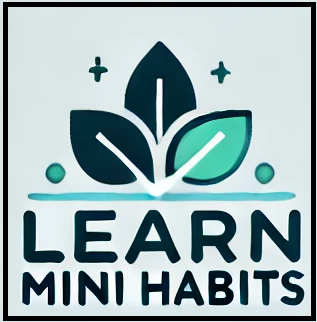Hunter Biden’s battle with addiction offers a powerful glimpse into the impact of drug dependency on families. As the son of President Joe Biden, Hunter’s journey shows that addiction affects everyone, regardless of status. His story sheds light on the broader addiction crisis in the U.S. and explores practical steps for recovery.

Understanding the Crisis: Hunter Biden’s Story
Hunter Biden’s struggle highlights the pervasive nature of addiction. Facing trial for falsely claiming he didn’t use illicit drugs on a gun purchase application, testimonies revealed his erratic behavior, substantial cash withdrawals for drugs, and possession of large quantities of crack cocaine. This story underscores the profound impact of addiction on both the individual and their loved ones.
The Ripple Effect on Families
The Bidens’ experience mirrors countless American families dealing with addiction. The emotional toll, financial strain, and social stigma are overwhelming. Families often cycle between hope and despair, trying to support their loved ones through recovery.
The Importance of Family Acknowledgment in Hunter Biden’s Defense
The family’s acknowledgment of Hunter’s addiction is significant in his defense, providing crucial context for his actions and emphasizing addiction as a disease rather than a moral failing. By recognizing Hunter’s struggle, the family helps to humanize him, portraying him not merely as a defendant but as an individual battling a serious health issue. This perspective can help explain inconsistencies in his behavior, such as erratic actions and moments of sobriety interspersed with relapse, which are common in addiction. Additionally, this acknowledgment aligns with the defense’s argument that addiction influences perception and decision-making, making it harder for the prosecution to prove that Hunter knowingly provided false information. By highlighting the complexities of addiction, the defense aims to evoke sympathy and understanding from the court and the public, ultimately presenting a more nuanced view of Hunter’s actions.

Breaking the Cycle: The Power of Mini Habits
At [Learn Mini Habits](www.learnminihabits.com), we believe in small, incremental changes to combat addiction. Mini habits are simple actions that lead to significant transformations. Here’s how they can help in recovery:
- Start Small: Set manageable goals, like a daily walk or short meditation. Small victories build confidence.
- Consistency Over Intensity: Focus on regular actions rather than sporadic, intense efforts. Consistency creates lasting change.
- Build a Support System:Surround yourself with supportive friends, family, or groups. Sharing experiences provides encouragement.
- Mindfulness and Self-Compassion: Practice mindfulness to stay present. Be kind to yourself and acknowledge progress, no matter how small.
- Education and Awareness: Learn about addiction to demystify the condition and foster a supportive environment.

Empathy and Action: Supporting Loved Ones
Supporting a loved one through addiction requires empathy, patience, and resilience. Practical steps include:
- Open Communication: Maintain honest, non-judgmental communication. Let your loved one know they aren’t alone.
- Encourage Professional Help: Advocate for therapy, counseling, or rehabilitation programs.
- Set Boundaries: Establish healthy boundaries to protect your own well-being.
- Celebrate Milestones: Recognize and celebrate every milestone in the recovery journey.
Inspiring Stories of Recovery
Real-life stories of recovery can inspire hope and provide practical insights. Share anecdotes or interviews with individuals who have successfully overcome addiction through mini habits and supportive environments. Highlight their challenges, strategies, and triumphs.
Additional Resources

Provide links to helpful resources such as hotlines, local support groups, and online communities. Offer downloadable guides or worksheets for setting mini habits and tracking progress.
Call to Action
Encourage readers to take action by adopting mini habits, seeking support, and sharing their stories. Invite them to join the Learn Mini Habits community to receive ongoing support and inspiration.
Key Notes
Hunter Biden’s story is a testament to the reality of addiction and its far-reaching impact. It calls for action to address this crisis with compassion and effective strategies. By adopting mini habits and fostering supportive environments, we can help those struggling with addiction find their path to recovery.
At Learn Mini Habits, we are committed to providing resources and support for those affected by addiction. Together, we can create a community of hope and healing, one small step at a time.
Real-Life Stories of Recovery
Hearing from those who have faced addiction and emerged stronger can be incredibly motivating. These stories can illustrate how mini habits have played a role in their recovery. For instance, a mother who started with daily journaling and gradually rebuilt her life, or a young professional who used small exercise routines to overcome addiction triggers.
Links and Resources
National Helpline: SAMHSA’s National Helpline (1-800-662-HELP)
Support Groups: Links to AA, NA, and other local support groups.
Educational Resources: Articles, books, and videos that provide information on addiction and recovery strategies.

